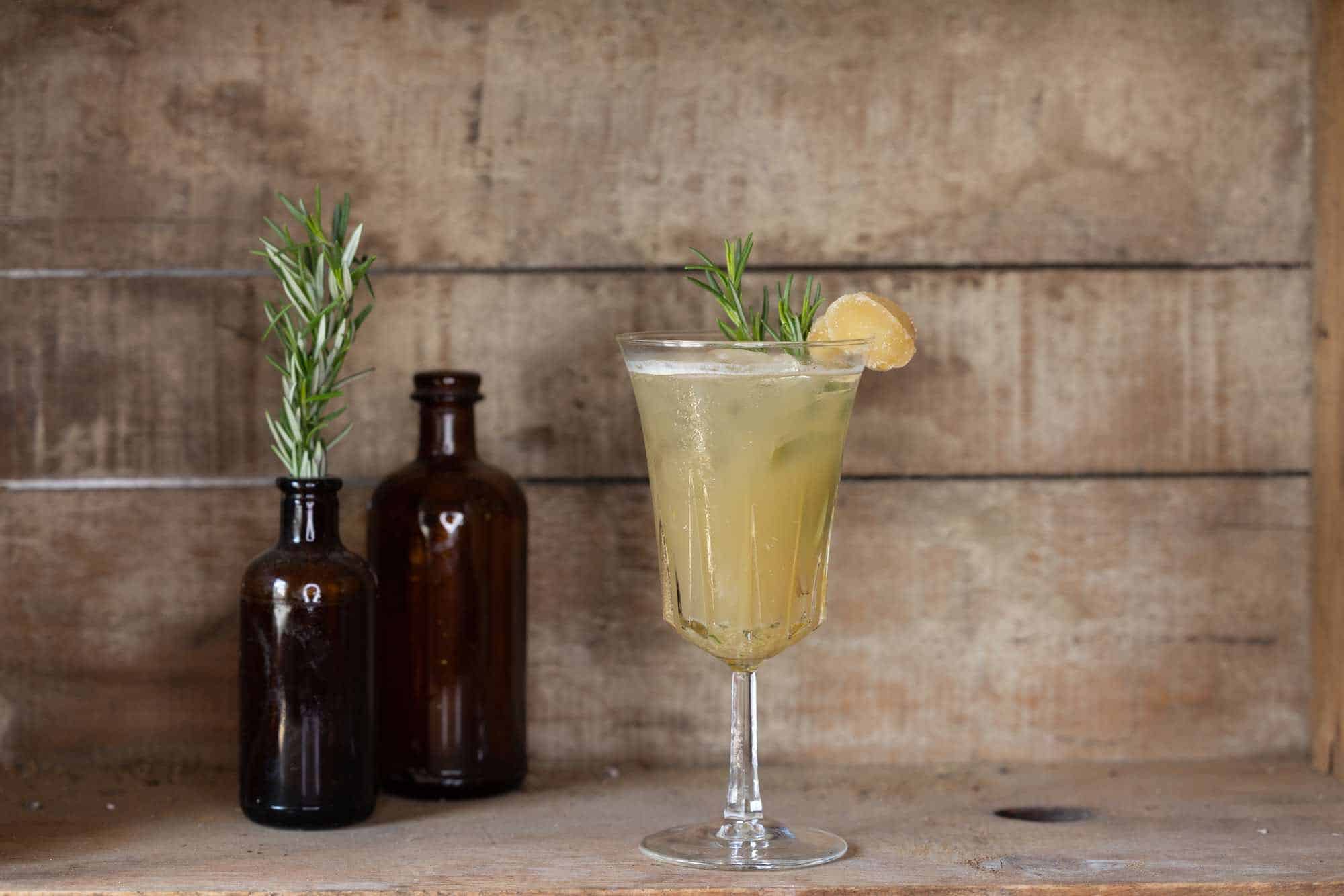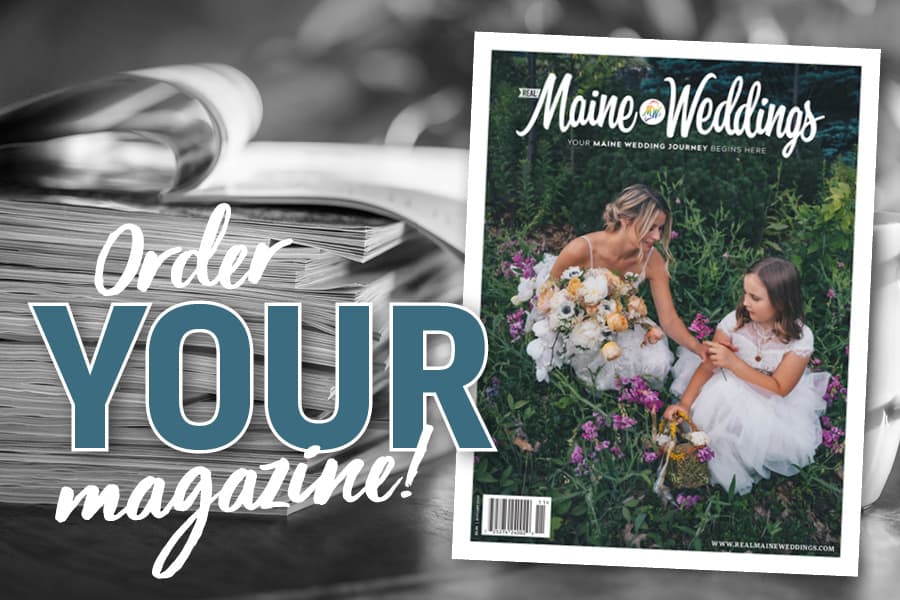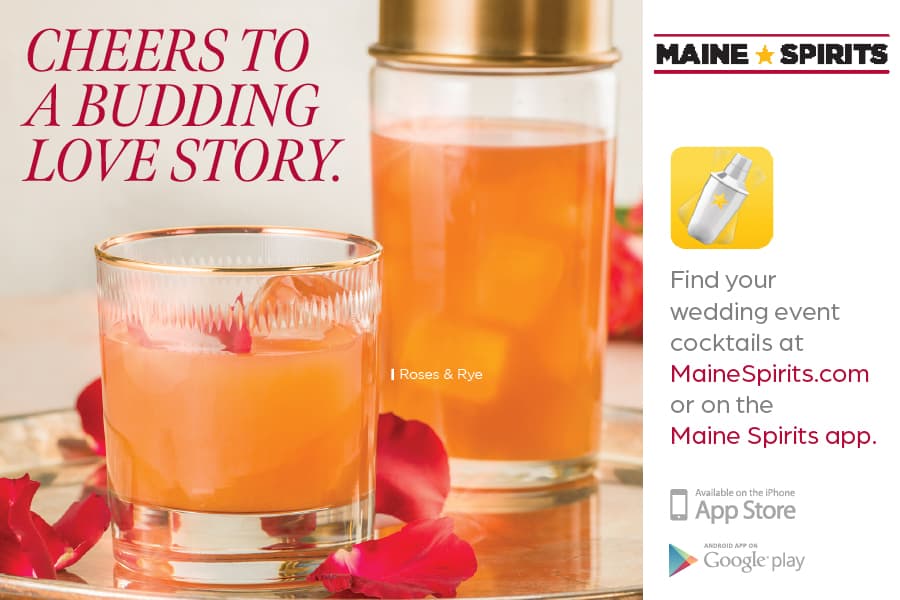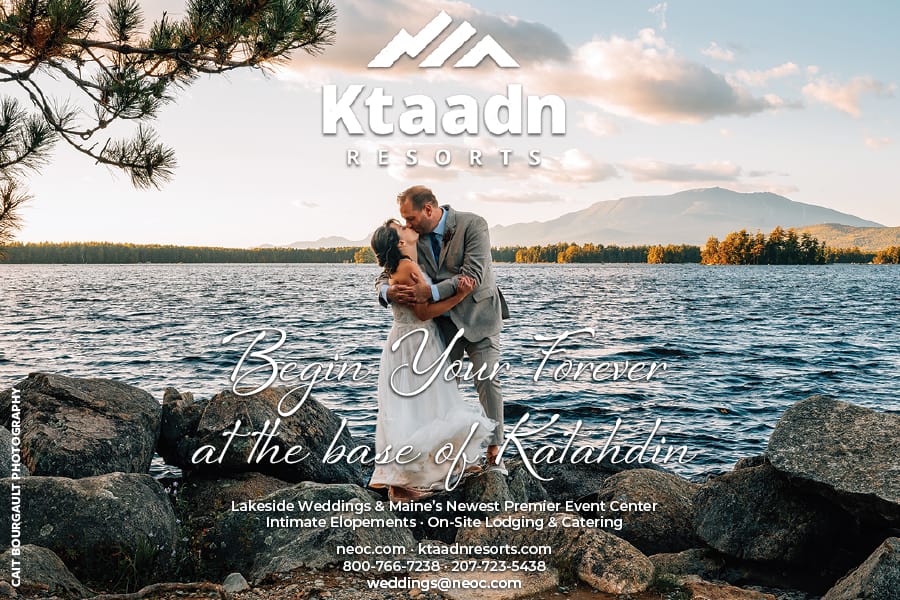When it comes to working in the wedding industry, it would be easier to list the areas where Misty Coolidge hasn’t dipped her toe. She owns and operates her venue, Coolidge Family Farm, in New Gloucester. She has restored a chapel in Gray (now renamed Coolidge Chapel), has worked with caterers waiting tables and leading events, and worked as a day-of coordinator for planning firms. While taking knowledge and experience with her from every turn in her career, it was through her experience in catering that she was pointed in a direction that would lead her to create the business that gives her the most pride and excitement: Maine Mixologist LLC.

“I was ready to leave catering because I just did not enjoy serving food,” said Misty Coolidge. “When I tried bartending, I found that I could use my personality in a different way, and I fell in love.”
Through bartending at events, Misty found that there was a gap in the industry for traveling bar services, and it was a gap that she believed she had just the skills to fill.
“I went right to the Maine Bureau of Alcoholic Beverages to find out what I would need to do to open a business like this,” Misty says of starting Maine Mixologist. “I don’t think they knew what to do with me, especially then! I was proposing a mobile bar service, which wasn’t exactly popular at the time.”
After a decade of operating Maine Mixologist, Misty and her team of 40 bartenders, barbacks, and servers provide bar service at around 150 weddings a year. Misty has made it her mission to know the ins and outs of serving alcohol in the state of Maine. She knows that for couples, it can be hard to know what the right choices are for their big day, so she shared some of her tips for serving alcohol at your wedding.
There are two types of alcohol services: licensed and unlicensed
A licensed bar service carries its liquor license and must purchase and sell all alcohol. These licenses are only given to companies that also serve food. They will bring the alcohol to the wedding/event, sell the alcohol during the event (usually either per drink as a cash bar or per person for an open bar), and then take the remaining alcohol with them when they leave. An unlicensed bar service, which is what Maine Mixologist is, does not carry their own liquor license, so they cannot purchase or sell the alcohol for the event. This means the client must provide the alcohol, and it must be an open bar, as neither we nor the client have a license to sell alcohol at the event. When I arrive on site, the alcohol must be unopened, and when I leave, I lock it up to protect myself, the venue, and the couple. Both types of service should carry liability insurance. Still, Maine Mixologists carries a $2 million policy (twice the average) so that I can make sure that our team is covered no matter what.
Think about your guest experience
When talking to my clients, I’ll explain to them that if you don’t have an open bar, you are expecting that your guests will have to open their wallets and shell out $8 to $10 each time they go to the bar. With an unlicensed bar service, you will provide the alcohol, and we will serve it without a markup, which can save couples around $2,000 to $5,000.
An unlicensed bar service can accept donated alcohol
Have a family member who makes homemade prosecco? Do you and your partner like to brew beer as a hobby? An unlicensed bar service can serve alcoholic beverages provided by the couple, creating a unique bar menu for your guests.
Ask questions
As you book your venue and vendors, look at what they require and offer for bar services and ask lots of questions. Some venues will have their requirements for alcohol service clearly listed, but if not, ask them what they require. Some catering services provide bar services, but if you’re unclear about what they offer or what service it is, ask! You do not always have to pair your bar service with your catering service. You can shop around and see what’s right for you.
Educate your guests
Outside alcohol may be permitted depending on the type of caterer you hire, but I recommend that you save your guests and vendors from potential conflict or embarrassment by letting them know ahead of time that alcohol will be provided at the venue and no outside alcohol is allowed inside. List what type of bar service you’re having (cash or open) on your wedding website or your informational card inside your invitation. Having a card with all the information is priceless, and putting bar information out to your guests ahead of time can save you a lot of headaches in the long run.
Serve something for everyone
When planning a menu, I recommend 3-4 different kinds of beer: a light beer, a wheat beer (Allagash White is a big Maine favorite), a seasonal beer (usually local, like Shipyard Summer or Baxter Blueberry Ale), and then a seltzer or cider. I would also offer 3-4 kinds of wine. In the summer, I offer two whites, one or two reds, and a prosecco. Think of the season. Most people won’t want to have a warm red wine in the summer, but in the fall, everyone wants to be cozy.
Add something unique and different!
Weddings aren’t real life! It’s a fun day outside reality, so that people will drink the wine with dinner, the prosecco with the toast, and try a different cocktail. The most common liquors for signature cocktails are whiskey and vodka, and I recommend that they appeal to 85-90% of your guests. Try something new and seasonal. I always recommend adding something to excite your guests to try it, like making a watermelon margarita instead of a regular one. We also see many people adding an additional service, like mini-cocktails or pre-ceremony cocktails. Our new favorite is the pre-ceremony pairing of a mini-split of champagne with the small Miller High Life bottles. Just a fun little touch!





